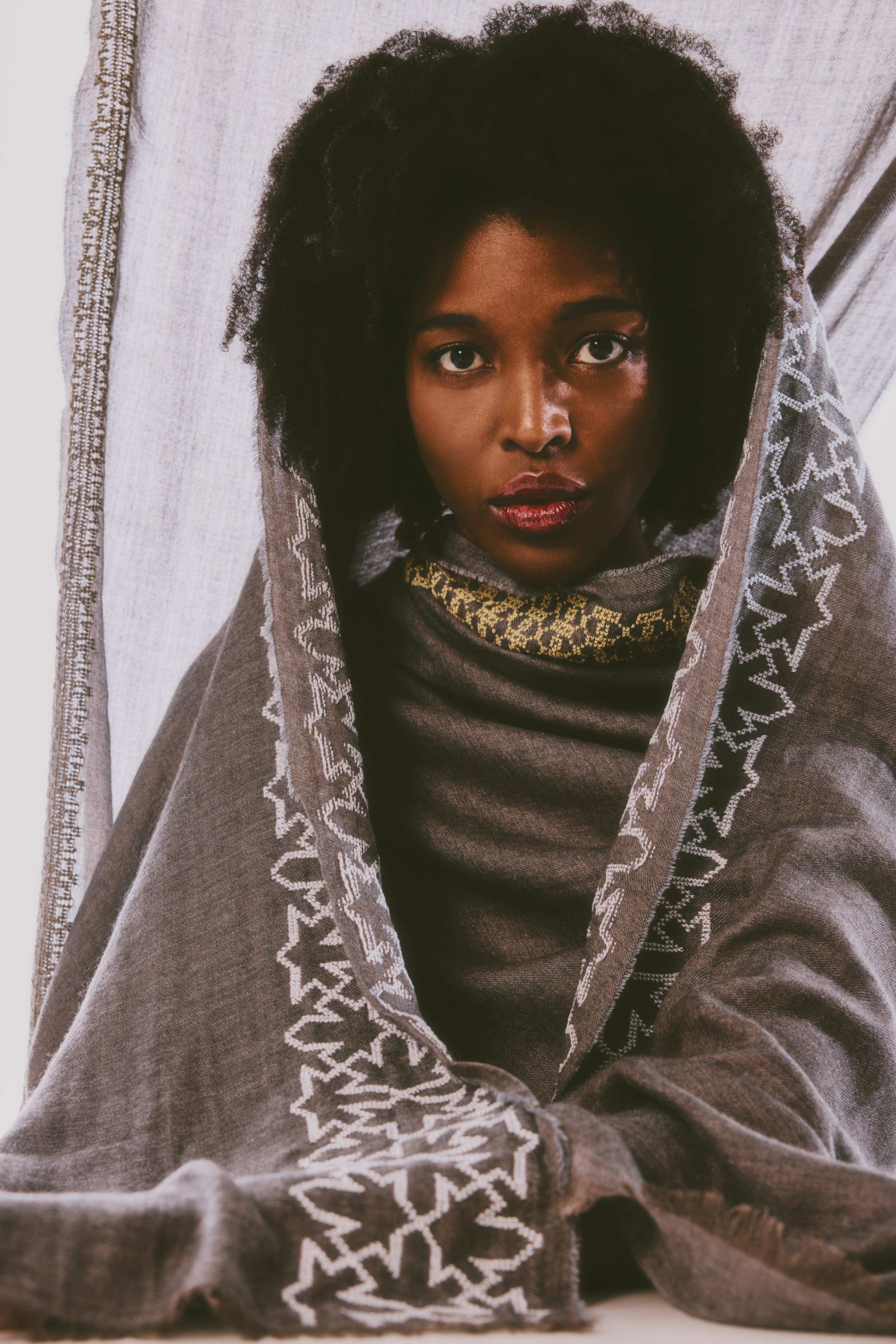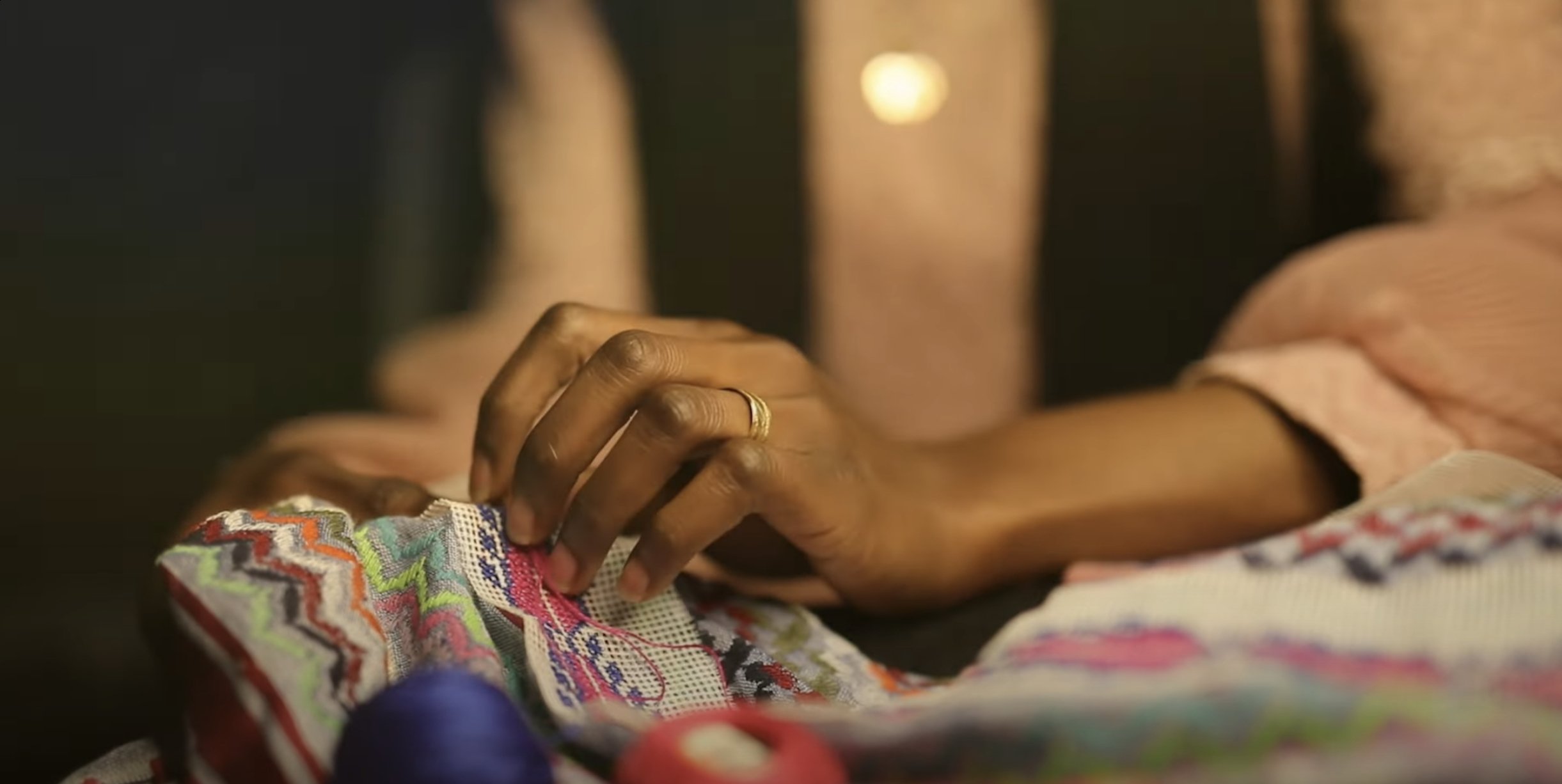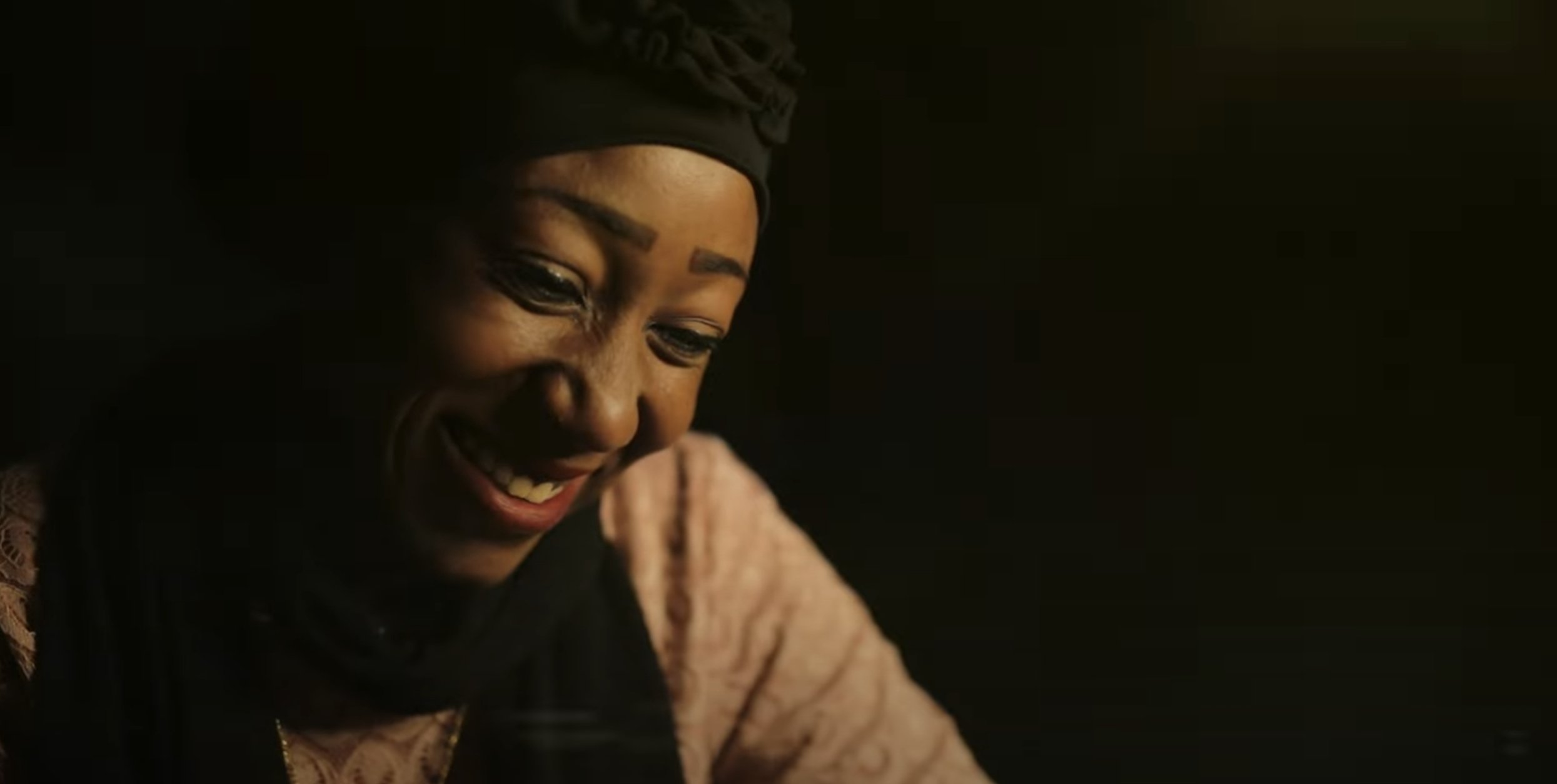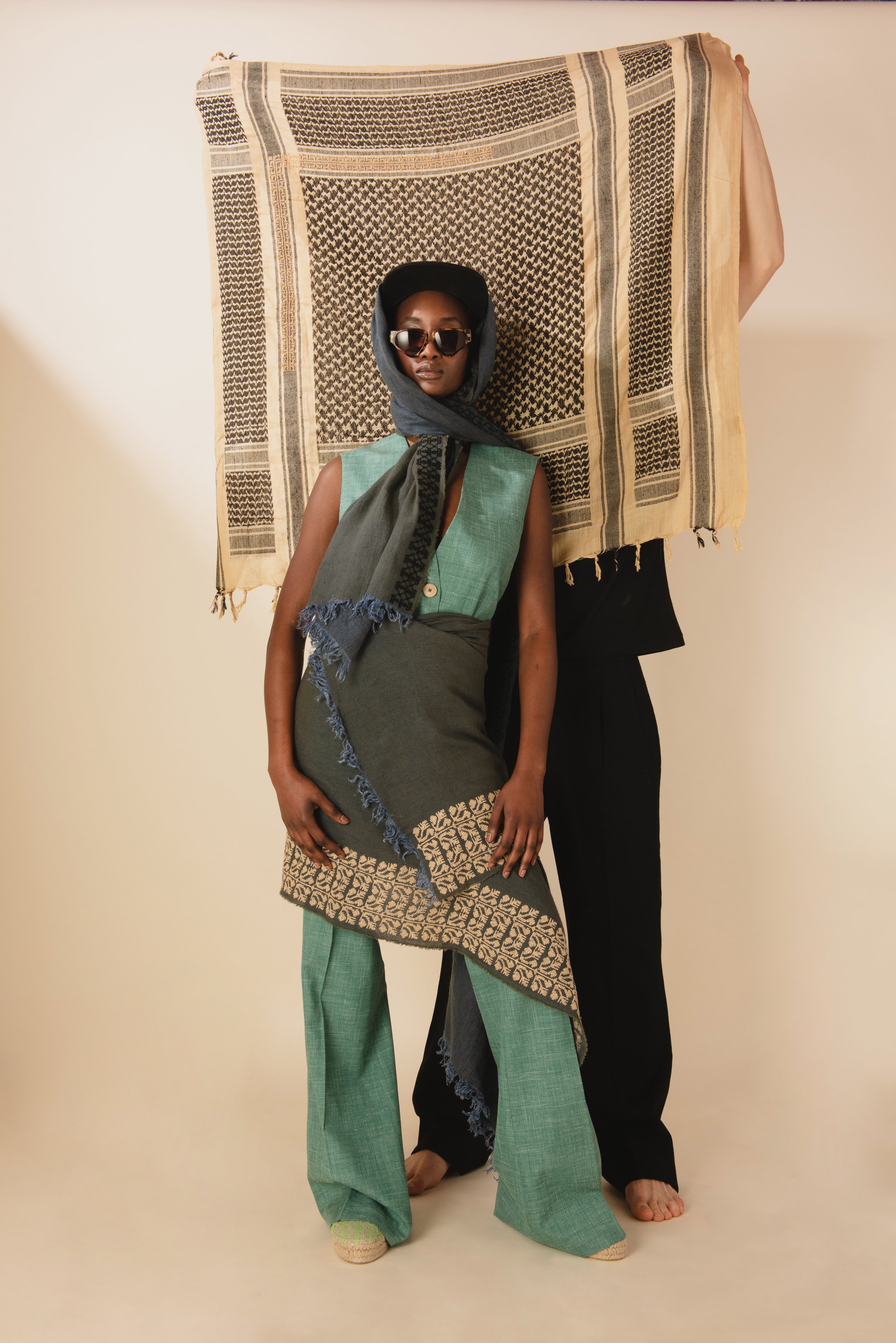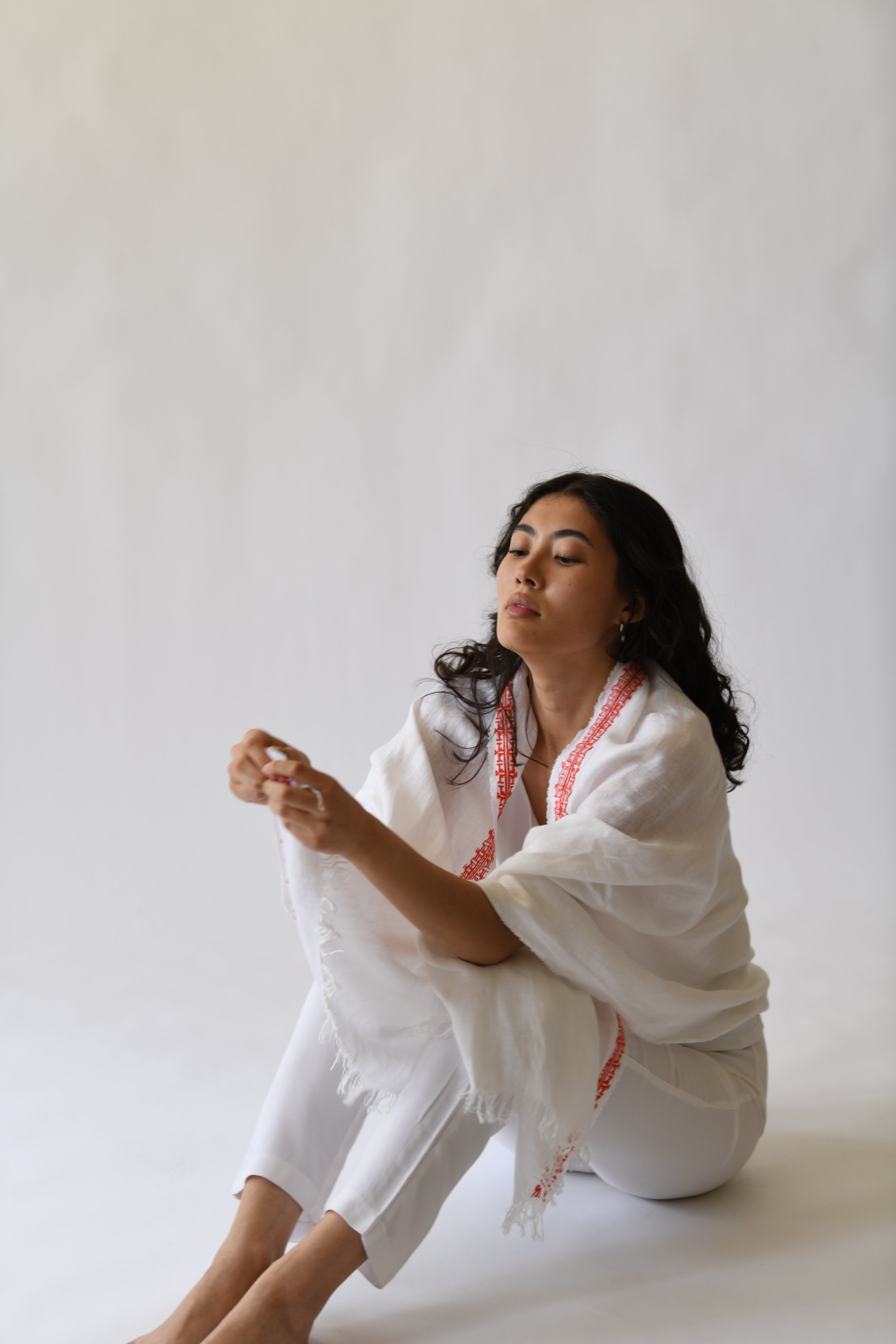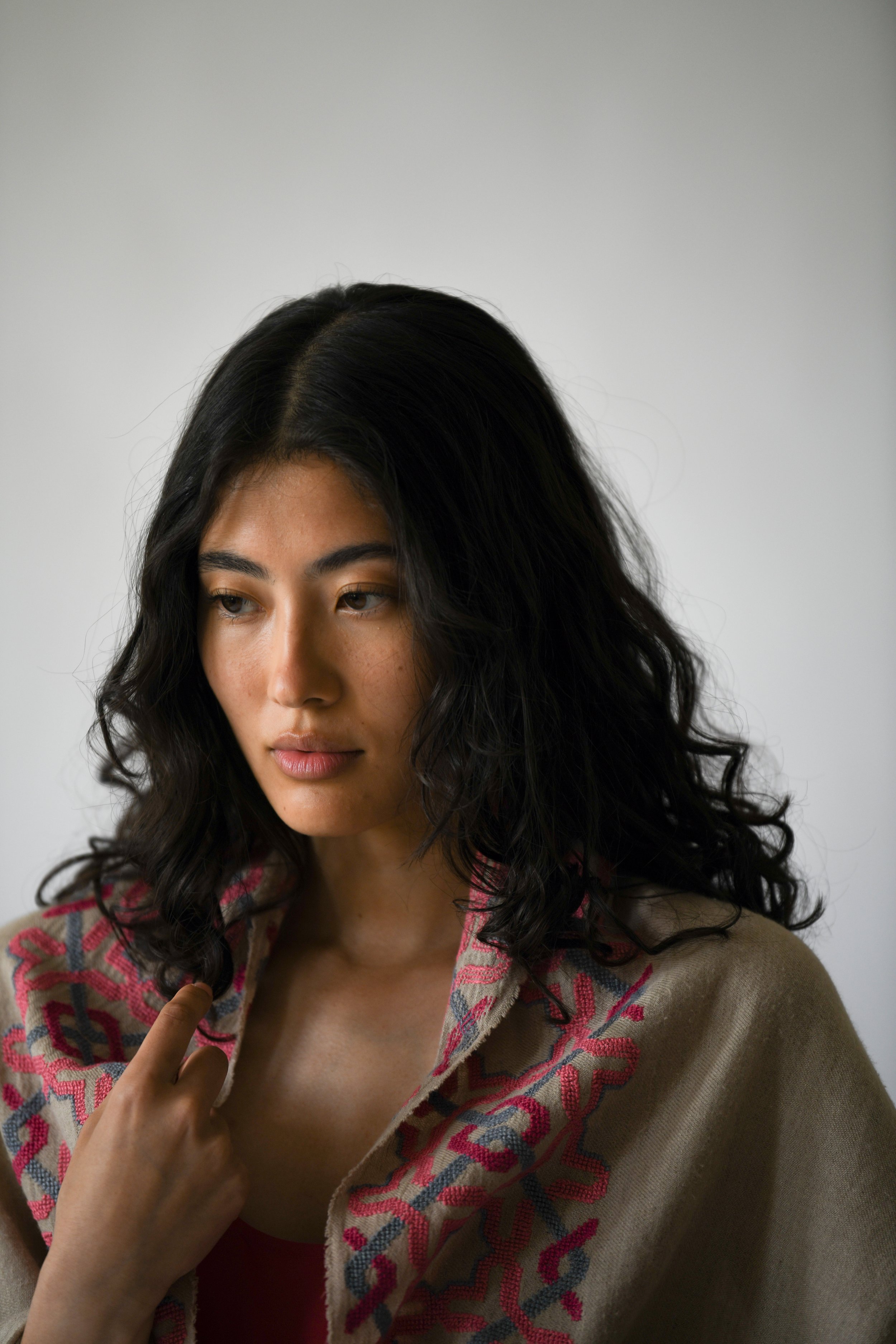SEP Jordan
Italian Style and Middle-Eastern Craftsmanship
The Social Enterprise Project or SEP for short, is a luxury fashion and lifestyle brand with social impact at its core.
Founded in 2013, they were the first Jordanian private company to set up in the Jerash Camp in Jordan.
SEP work in collaboration and in partnership with over 500 refugee embroidery artists, predominately from Gaza, to support sustainable paths to economic independence in a place where few other options exist.
SEP is a Certified B Corporation where society and the environment are considered stakeholders of equal standing as profit. Their mission is to help bring thousands of women refugees and their families out of poverty by empowering them to leverage their skills and talent and become change-makers with a positive impact on their community.
More than 114 million individuals have been forcibly displaced worldwide as a result of persecution, conflict, violence or human rights violations (UNHCR 2023). We are currently witnessing the highest levels of displacement on record, with the largest ever single-year increase in forced displacement in UNHCR history (2023), with numbers only set to increase. Despite the intended temporary nature of these camps, the average amount of time a refugee stays in a refugee camp is 17 years, causing a cycle of mental and physical health issues that too often start with gratitude and end in depression and hopelessness. Too many live in overcrowded conditions with poor sanitation and hygiene, lack food security and access to fresh water and health care, and live under the constant threat of violence (PCRF, no date).
Palestinians are the world’s largest stateless community (US News, 2024). In the wake of the current iteration of the Israel Palestinian conflict, Palestinians have been displaced in enormous numbers, with about 1.9 million forced to feel their homes in the past few months alone, and 33,000 killed by air and artillery strikes. The ongoing conflict has resulted in around 7 million Palestinian refugees around the world, many thousands of whom were forced to flee from the 1948 Nakba (refugees International, 2024).
The Jerash Camp in Jordan where SEP operate, was set up in 1968 for 11,500 Palestinian refugees and displaced persons from the Gaza Strip as a direct result of the Arab Israeli war (UNRWA 2023). Gazans constitute approximately 90 percent of registered Palestinian refugees living in the camp, alongside some Syrian refugees. The Gaza camp as it is known locally, is the poorest of all the Palestinian refugee camps in Jordan, of which there are 10. Most residents don’t have residential status, meaning they are severely limited in their ability to earn a living, access
Having fled their homes, refugees leave behind their entire lives. Some fled before completing their education, while others are highly skilled professionals struggling to use their skills to gain employment. According to the International Rescue Committee, giving artisans a job allows refugees to build social and professional networks, become active participants in their community and contribute their valuable skills.
At the core of the work SEP do, is hand embroidery with techniques and traditions that represent the cultural heritage of the refugees.
They help to protect, treasure and celebrate those traditions by combining Italian style with Middle Eastern craftsmanship.
SEP operate four stores, one in Geneva, one in Milan, another in Berlin and the third in Amman, as well as an eCommerce website that sells a range of luxury fashion and home accessories.
The work they do results in real change in the lives of the 500 craftswomen they work with, granting them self-sufficiency, a sense of pride, self-esteem and dignity.
SEP fulfil the UNs Social Development Goals 1, 3, 8, 10, 12 and 17: relating to poverty, good health and well-being, decent work and economic growth, reduced inequalities, responsible consumption and production and partnerships for the goals.
Since their inception, SEP have worked with over 800 artists, with an impact documented as improving 87 percent of artisan’s mental health.
They pay 50 percent higher than the market rate, offering benefits and performance-related bonuses.
They have provided more than 160 pairs of glasses to artists and 849 of SEP artists children have attended after school activities through the SEP Academy since 2019 alone.
The SEP Academy was founded in the Jerash Camp in 2016 in collaboration with UNHCR, where they train hundreds of refugees in the art of embroidery.
Training includes the traditional cross stitch technique used in classic Palestinian textiles, but also the almost extinct Bethlehem couching technique and others.
Cross stitch is done through canvas onto a variety of fabric grounds where stitches cannot be counted, with the canvas painstakingly deconstructed thread by thread after the work is complete.
The collection revolves around the iconic Palestinian Keffiyeh, traditionally produced in classic red or black in well-established patterns, which is augmented by a range of non-traditional colourations produced in Jordan by one of the last Keffiyeh producers.
New patterns and designs are inspired by traditional Islamic geometry, relating to theological and mystical thought, with patterns built on combinations of repeated squares and circles with overlapping and interlaced designs forming intricate and complex patterns and tessellations.

